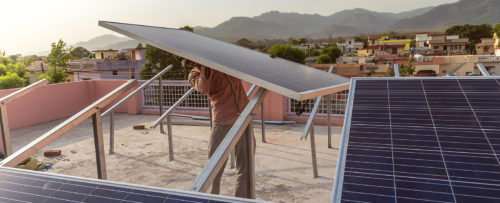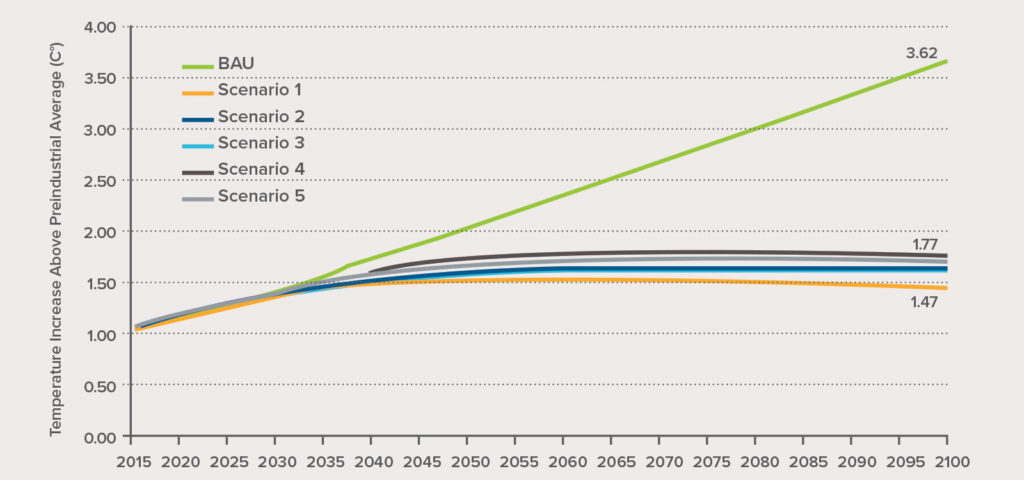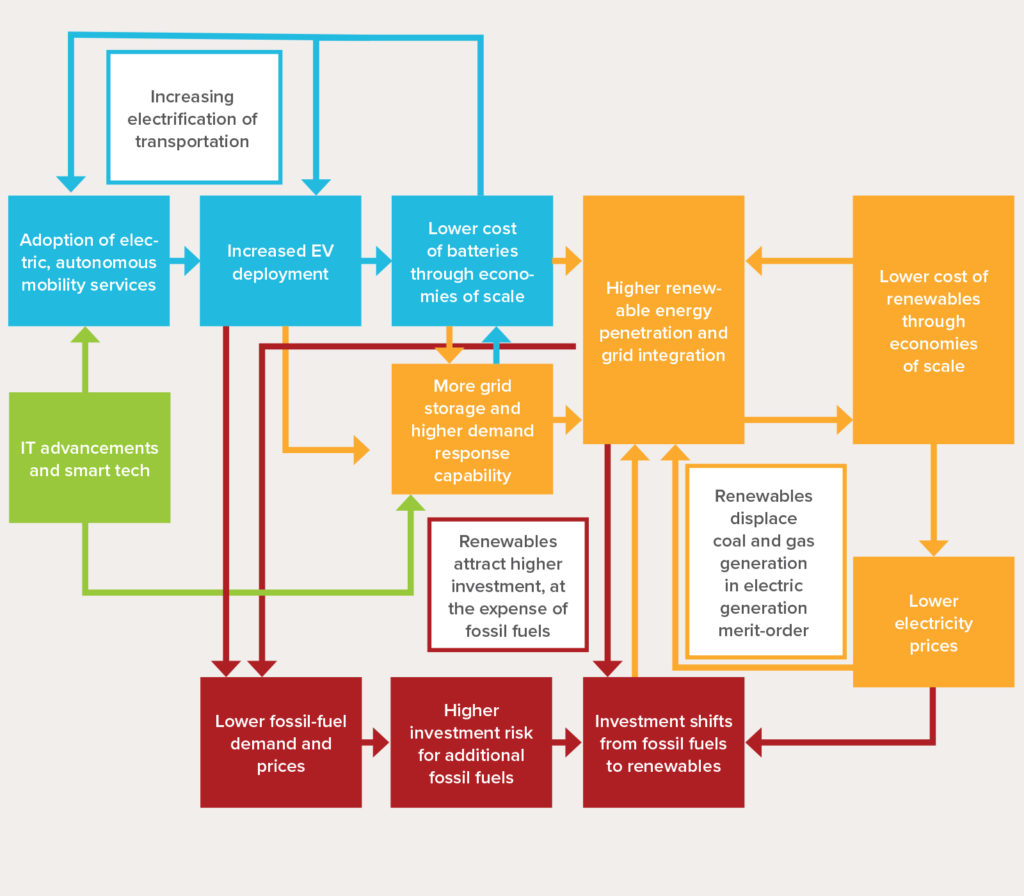
Report | 2017
Positive Disruption: Limiting Global Temperature Rise to Well Below 2 C°
Rocky Mountain Institute’s Positive Disruption: Limiting Global Temperature Rise to Well Below 2 Cº analysis describes scenarios for rapid transitions in energy, agriculture, and land use that could limit global average temperature increase to 1.5–2 C° above preindustrial levels.

Why This Matters
RMI’s analysis reveals how positive feedbacks in clean-energy technologies can drive down costs as global manufacturing scale increases, creating virtuous cycles similar to the ones that have driven Moore’s Law in the high-tech sector.
In the energy sector, rapid advances in key technologies, including solar and wind power, battery storage, LED lighting, and electric vehicles, put energy systems today at the cusp of rapid, self-reinforcing change, the report concludes. The electrification revolution, driven by synergistic changes in electricity and transportation systems, is gaining momentum globally and has the power to produce changes on the scale of the Industrial Revolution. Emerging economies such as China and India are embracing and speeding this transition, while U.S. policy at the national level now is trying to resist it to protect legacy industries.
Nations must also address the greenhouse gas emissions and sequestration opportunities associated with agriculture, forestry, and other land use (AFOLU). Such practices include increasing forest cover and avoiding conversion of forests to other land uses, integrating trees into farming, farming without disturbing the soil through tillage, adopting permaculture practices, managing wetlands, and using rotational grazing techniques that amplify soil carbon sequestration. Significant negative emissions from these sectors by midcentury will be critical in stabilizing and reducing greenhouse gas concentrations.

